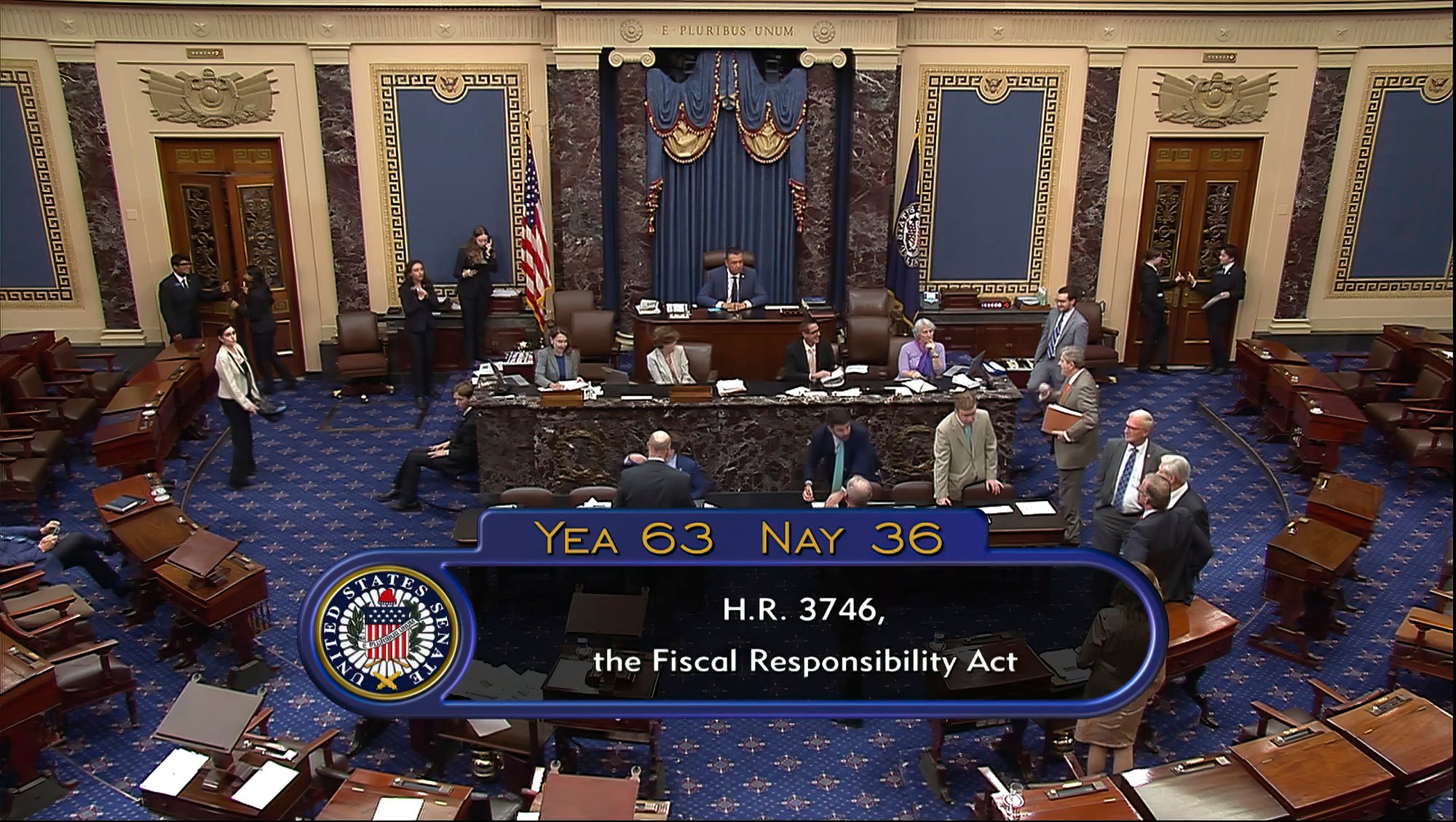
Joe Biden hails ‘big win’ as US Congress passes debt ceiling deal, averting default
- US senators pass a bipartisan debt limit deal after it was approved overwhelmingly by the House of Representatives on Wednesday
- The deal lifts the US government’s US$31.4 trillion debt ceiling ahead of the June 5 ‘X-date’, avoiding a first-ever US default
US President Joe Biden hailed a “big win” for Americans and the US economy after the Senate voted to pass legislation to lift the government’s US$31.4 trillion debt ceiling, avoiding a catastrophic sovereign default.
Passing 63 to 36 votes in the Senate on Thursday, the bill heads to Biden, who had brokered the debt deal with Republican House Speaker Kevin McCarthy.
Biden had urged lawmakers to get the bill to his desk to sign in time to avoid a first-ever US default that could have come as early as Monday, the so-called “X-date” when the US Treasury would not have enough money to cover all of its debts.
“Senators from both parties voted to protect the hard-earned economic progress we have made and prevent a first-ever default by the United States,” Biden said. “No one gets everything they want in a negotiation, but make no mistake: this bipartisan agreement is a big win for our economy and the American people.”

While Republicans comprised most the no-votes in the Senate, as expected, four senators on the Democrat’s left flank, including Elizabeth Warren of Massachusetts and John Fetterman of Pennsylvania also voted against.
The bill suspends the debt ceiling until January 1, 2025 – after the 2024 presidential election – allowing the US government to pay its bills.
The White House had to overcome criticism from some lawmakers that its 3.3 per cent increase in military spending to US$886 billion next year was below the prevailing inflation rate of around 5 per cent, and therefore a decrease in procurement power.
South Carolina’s Lindsey Graham, a Republican who sits on the Senate Appropriations Committee, had led with this line of attack earlier on Thursday, when he warned about rising military threats posed by Beijing and Moscow, and called the bill passed by the House “a win for China”.
McCarthy’s moment: US debt win secures House speaker’s standing
Some lawmakers, mostly Republicans, tried to obstruct passage by proposing amendments to the bill, which, if passed, would have required a vote on the changes in the House. That would have almost certainly blocked Congress’s ability to get a bill to Biden by June 5.
Senator Josh Hawley, a Missouri Republican, pushed an amendment that would have applied across-the-board tariffs on all imports from China until America’s deficit with the country is erased.
In a rebuttal, Senator Sherrod Brown, an Ohio Democrat, said: “China would love for us to pass this amendment because if it passes, the United States of America would default. They will be rejoicing in Beijing”.
The final Senate vote on the debt bill proceeded after backers of the amendments failed to garner the 60 votes necessary to have any of them written into the legislation.
Florida Senator Rick Scott, a Republican who voted no on the debt bill, also released a statement immediately after the result came in, calling it “madness”.
“This legislation will only bury us deeper in debt and does nothing to stop the rampant inflation Biden and the Democrats have caused with their addiction to reckless government spending,” he said. “We won’t say ok to ‘good enough.’ I am committed to stopping this madness.”
Dissatisfaction over Pentagon funding might ultimately be resolved through a supplemental spending package at a later date, which appears to have bipartisan support.
“The first problem of an inadequate defence budget could be addressed and remedied by an emergency defence supplemental,” Politico quoted ranking Appropriations Republican Susan Collins of Maine as saying ahead of the vote.
“That is what I would ask the administration and my colleagues on the other side of the aisle to commit to because we know this budget is not adequate to the global threats that we face.”
Senate Armed Services Chair Jack Reed, a Rhode Island Democrat, said such a measure might be needed for Washington to continue supporting Ukraine’s efforts to fight back against Russia’s invasion.
“I think with Ukraine, you’re going to have to have a supplemental,” he said. “We might put some other stuff in, too.”

